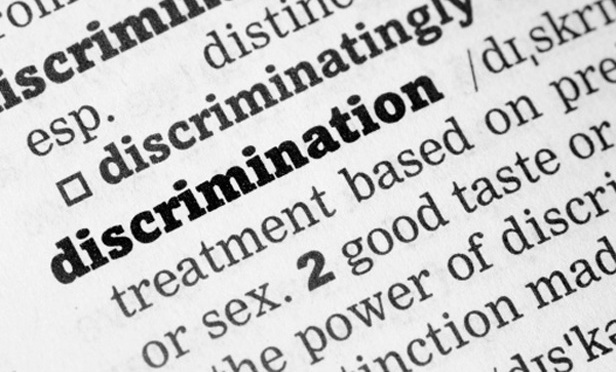Jeffrey Campolongo

July 24, 2015 | The Legal Intelligencer
Analysis of Counsel Fee Awards in Two Cases With Same AttorneyAttorney fees. There are few things in the practice of law that are as sacrosanct as payment for the professional guidance we provide to our clients, whether the matter is a billion-dollar complex acquisition by a multinational conglomerate or drafting a simple will. As lawyers we tend to be very self-aware, perhaps even sensitive, when it comes to being paid what we deem a reasonable amount for our time and attention to our craft. For those of us who practice in the employment law world where there is a statutory fee-shifting provision, we tend to be even more in tune to legal issues affecting how we are paid. That is why two recent decisions from the Eastern District of Pennsylvania issued merely a day apart have prompted some curious head-scratching by practitioners.
By Jeffrey Campolongo
9 minute read

June 26, 2015 | The Legal Intelligencer
Justices Revive Religious Accommodation Case Against Abercrombie & FitchThe U.S. Supreme Court recently addressed a case regarding a Muslim woman's right to have her religious practices accommodated under Title VII of the Civil Rights Act of 1964. In a much anticipated, and in many ways, surprising decision, the high court decided the hiring practices of the popular retail clothing company Abercrombie & Fitch violated Title VII. The case, EEOC v. Abercrombie & Fitch Stores, No. 14-86, was decided June 1. Unfortunately, this is not the first time Abercrombie's employment and hiring practices made headlines.
By Jeffrey Campolongo
7 minute read

June 25, 2015 | The Legal Intelligencer
Justices Revive Religious Accommodation Case Against Abercrombie & FitchThe U.S. Supreme Court recently addressed a case regarding a Muslim woman's right to have her religious practices accommodated under Title VII of the Civil Rights Act of 1964. In a much anticipated, and in many ways, surprising decision, the high court decided the hiring practices of the popular retail clothing company Abercrombie & Fitch violated Title VII. The case, , No. 14-86, was decided June 1. Unfortunately, this is not the first time Abercrombie's employment and hiring practices made headlines.
By Jeffrey Campolongo
7 minute read

May 22, 2015 | The Legal Intelligencer
When Employee's FMLA Leave Is Over, the ADA Kicks InHaving just returned from speaking at the Pennsylvania Bar Institute's 21st annual Employment Law Institute, the No. 1 question on the mind of employers was how to deal with an employee's request for leave under the Americans with Disabilities Act once the employee's Family and Medical Leave Act leave has expired. The answer, like most reasonable accommodation issues, is it depends. Courts throughout the country have consistently held that unpaid leave is a form of reasonable accommodation. Unpaid leave may be an appropriate reasonable accommodation when an individual expects to return to work after getting treatment for a disability, recovering from an illness, or taking some other action in connection with his or her disability.
By Jeffrey Campolongo
7 minute read

May 21, 2015 | The Legal Intelligencer
When Employee's FMLA Leave Is Over, the ADA Kicks InHaving just returned from speaking at the Pennsylvania Bar Institute's 21st annual Employment Law Institute, the No. 1 question on the mind of employers was how to deal with an employee's request for leave under the Americans with Disabilities Act once the employee's Family and Medical Leave Act leave has expired. The answer, like most reasonable accommodation issues, is it depends. Courts throughout the country have consistently held that unpaid leave is a form of reasonable accommodation. Unpaid leave may be an appropriate reasonable accommodation when an individual expects to return to work after getting treatment for a disability, recovering from an illness, or taking some other action in connection with his or her disability.
By Jeffrey Campolongo
7 minute read

April 24, 2015 | The Legal Intelligencer
Noncompete Controversy Taking Shape in Pa. Supreme CourtIt appears that things are starting to heat up in the world of noncompete clauses in employment agreements. Apparently, the Pennsylvania Supreme Court kicked off a firestorm of arguments when it decided to grant review of the Superior Court's decision in Socko v. Mid-Atlantic Systems of CPA, 2014 PA Super 103, 99 A.3d 928, appeal granted, 105 A.3d 659 (Pa. 2014).
By Jeffrey Campolongo and William T. Wilson
7 minute read

April 23, 2015 | The Legal Intelligencer
Noncompete Controversy Taking Shape in Pa. Supreme CourtIt appears that things are starting to heat up in the world of noncompete clauses in employment agreements. Apparently, the Pennsylvania Supreme Court kicked off a firestorm of arguments when it decided to grant review of the Superior Court's decision in , 2014 PA Super 103, 99 A.3d 928, appeal granted, 105 A.3d 659 (Pa. 2014).
By Jeffrey Campolongo and William T. Wilson
7 minute read

March 09, 2015 | The Legal Intelligencer
Courts Work to Protect Employees From Harassing Discovery TacticsDo plaintiffs in employment cases have a legitimate privacy interest in information regarding their subsequent employment? Nowadays, most courts say yes. An increasing number of courts have frowned on the employer's practice of subpoenaing employment records from a plaintiff's subsequent (or in some cases, current) employer.
By Jeffrey Campolongo
6 minute read

March 09, 2015 | The Legal Intelligencer
Courts Work to Protect Employees From Harassing Discovery TacticsDo plaintiffs in employment cases have a legitimate privacy interest in information regarding their subsequent employment? Nowadays, most courts say yes. An increasing number of courts have frowned on the employer's practice of subpoenaing employment records from a plaintiff's subsequent (or in some cases, current) employer.
By Jeffrey Campolongo
6 minute read

January 23, 2015 | The Legal Intelligencer
Use of Implicit Bias Evidence to Prove DiscriminationAre you or your co-workers guilty of "unconscious discrimination"? Is your manager or supervisor guilty of "implicit bias" in the workplace? These terms and others like it are used in social science to describe the inherent nature of stereotyping that takes place in everyone. The issue courts are being confronted with on a more frequent basis revolves around whether evidence of this type of stereotyping can form the basis for liability under anti-discrimination laws.
By Jeffrey Campolongo
7 minute read
More from ALM
- Legal Speak at General Counsel Conference East 2024: Match Group's Katie Dugan & Herrick's Carol Goodman 1 minute read
- Legal Speak at General Counsel Conference East 2024: Eric Wall, Executive VP, Syllo 1 minute read
- Legal Speak at General Counsel Conference East 2024: Virginia Griffith, Director of Business Development at OutsideGC 1 minute read



